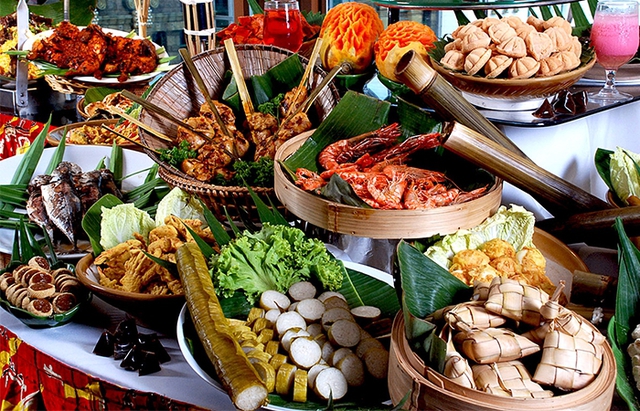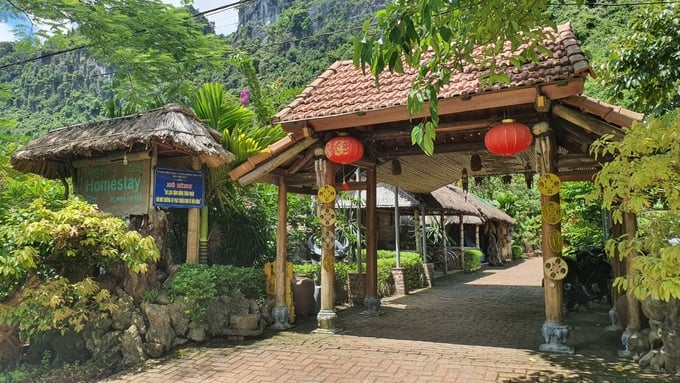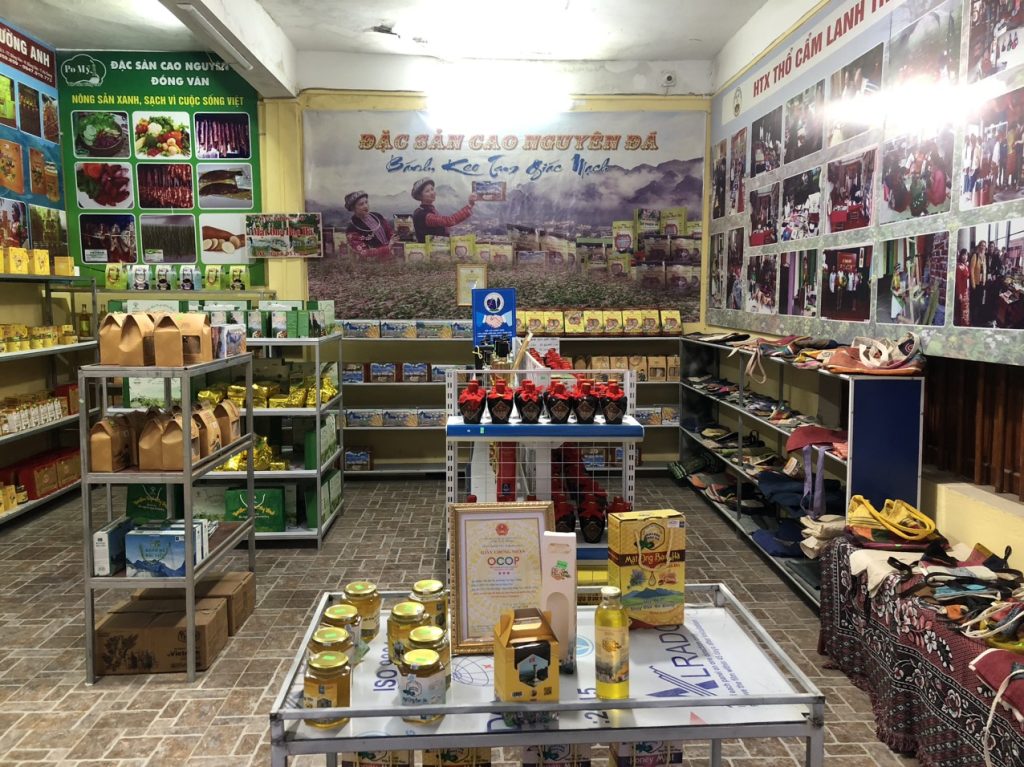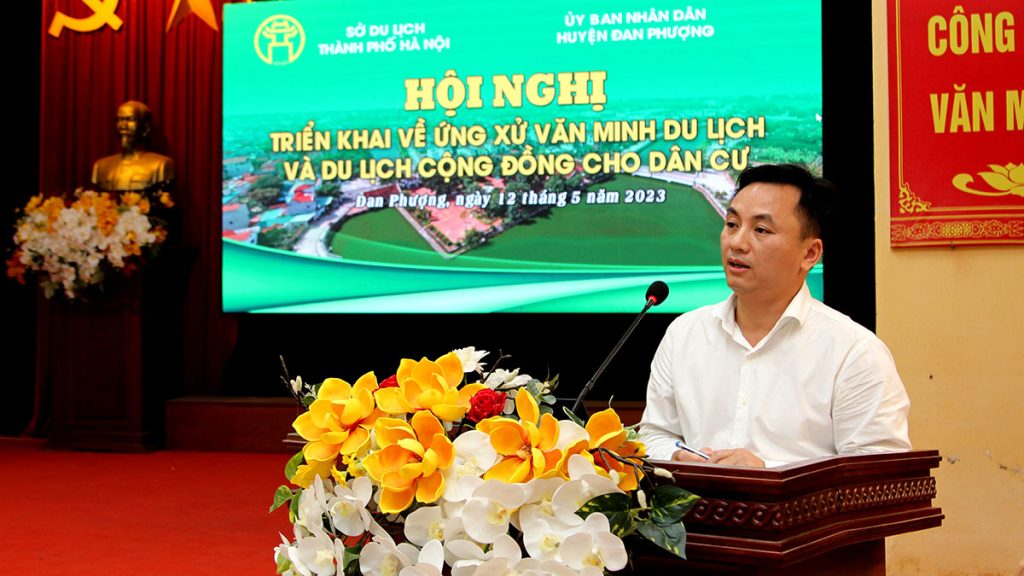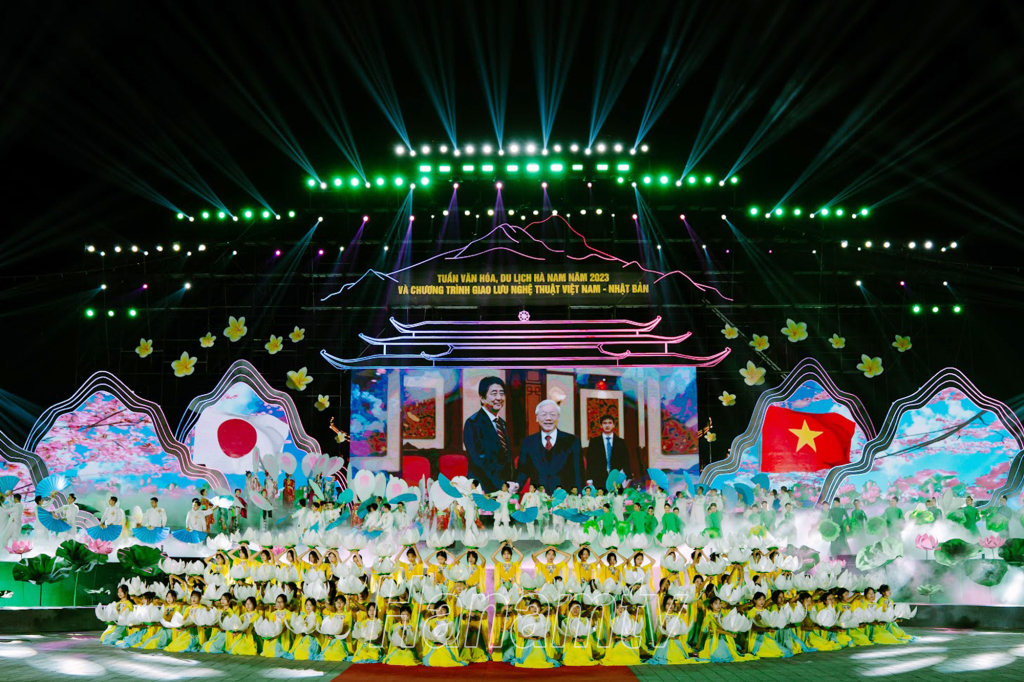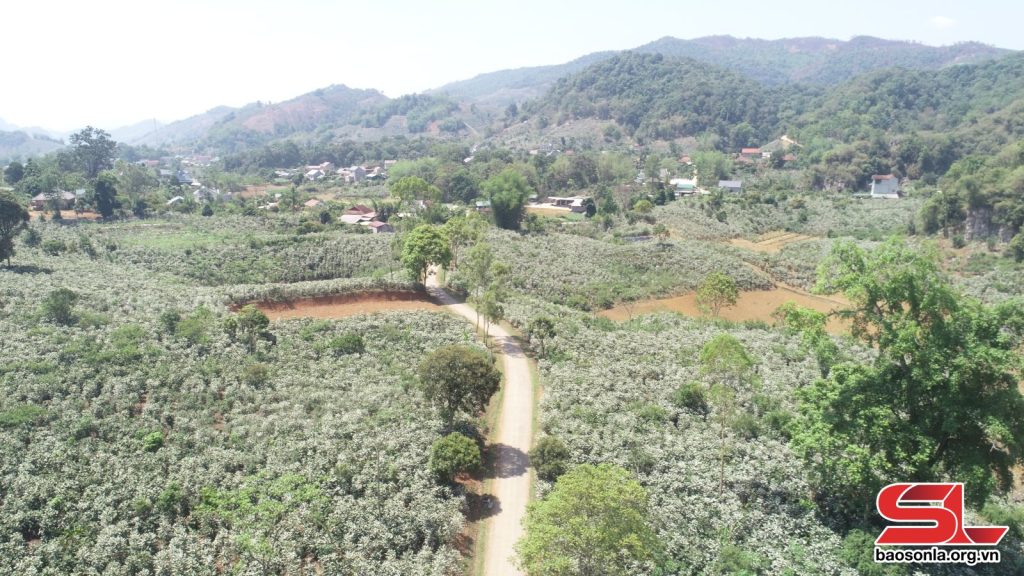On August 2, 2022, the Prime Minister issued Decision No. 922/QD-TTg on the rural tourism development program within the framework of building new rural areas for the period 2021-2025. In Quang Tri province, rural tourism has been prioritized for development in recent years. This initiative has effectively utilized the potential and advantages of rural areas to increase local incomes, contribute to rural economic development, and promote the sustainable and profound implementation of the new rural areas program.
Quang Tri currently boasts over 600 historical and scenic sites, including 479 provincially recognized historical sites, 33 nationally recognized sites and clusters, and 4 sites of special national significance. The province is endowed with diverse natural landscapes such as forests, caves, waterfalls, rivers, lakes, seas, and islands.
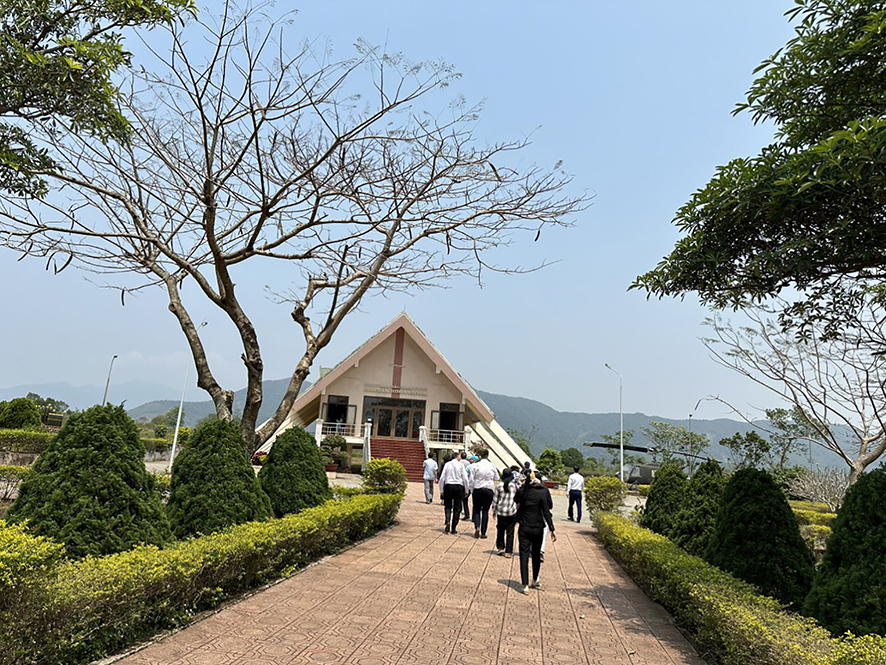
Tourists visit Ta Con Airport site at Huong Hoa District. Photo: T.L
There are 15 traditional crafts, craft villages, and traditional villages, along with numerous farms and agricultural areas that capitalize on environmental and scenic advantages, transforming production processes into attractive experiential activities.
Moreover, integrating agricultural tourism value chains, combining sightseeing with cultural experiences and gastronomy, creates a diverse and appealing range of products.Based on existing potential and advantages, recent years have witnessed significant developments in both general tourism and rural tourism in the province.
These initiatives have generated livelihoods, employment opportunities, and higher incomes compared to purely agricultural activities, gradually improving the lives of local residents and positively impacting the implementation of the local New Rural Development Program. However, alongside these achievements, rural tourism development still faces various challenges and shortcomings.
According to Nguyen Hong Phuong, Deputy Director of the Department of Agriculture and Rural Development, “Quang Tri’s rural tourism models are still largely spontaneous and lack systematic planning and sustainability, resulting in less effective outcomes that fail to meet the real-life experiential and shopping needs of tourists. They have also not attracted sufficient investment from businesses to develop tourism systematically. Connections and cooperation with tour operators are still limited.”Especially, there has been no model developed for agricultural and rural tourism linked to One Commune One Product (OCOP).
Additionally, issues such as planning and procedures for converting agricultural land use to service and tourism purposes remain unresolved.Land laws do not fully regulate policies combining landscape business with eco-tourism under forest canopies, nor do they have regulations on land use planning for mixed-use types on agricultural land…On the other hand, conserving and developing traditional crafts, craft villages, and traditional villages linked to agricultural tourism is challenging and requires long-term vision.
Many traditional handicrafts are currently maintained by very few families. There are no standardized criteria for rural tourism products.Currently, there are no recognized tourism areas in the province, which poses many obstacles to implementing supportive policies. Issues related to communication, promotion, and fostering sustainable rural tourism development within the framework of New Rural Development have not been professionally and comprehensively implemented.
To implement Decision No. 922/QD-TTg, the provincial People’s Committee issued Plan No. 210/KH-UBND on December 2, 2022, outlining the implementation of the rural tourism development program within the new rural areas framework for the period 2022-2025 in the province.
Efforts are focused on developing and standardizing rural tourism destinations and products by 2025. It is aimed that each district within the new rural areas has at least one unique agricultural rural tourism model…Developing rural tourism within new rural areas is a necessary direction to boost rural economic development in the province, and improve the material and spiritual lives of local people. In the coming time, the province will effectively implement mechanisms and policies for rural tourism development.
This includes focusing on establishing directions for rural tourism development and integrating and supplementing development plans and rural planning. It also aims to guide and create conditions for enterprises, cooperatives, and household businesses to participate in rural tourism development. Promote rural-urban linkages in tourism development, prioritize rural tourism development in resource-rich areas, and connect with tourism development hubs, and tourism centers…
Along with that, the province will mobilize, integrate, and efficiently use resources for rural tourism development, such as increasing social mobilization resources, sponsorship from international cooperation organizations, investments from enterprises, agricultural cooperation organizations, and community contributions.
Encourage and attract investment in rural tourism development in various areas and environments according to legal regulations to create stable revenue sources from tourism activities to reinvest in tourism resource protection efforts. Encourage and call for initiatives, ideas, projects, and innovative entrepreneurship models in agriculture, and handicrafts linked to rural tourism…
Efforts in propaganda, promotion, and raising awareness about sustainable rural tourism will be emphasized through strengthening communication activities, raising awareness, changing mindset, knowledge, and actions for Party committees, authorities, officials; organizations, individuals in the tourism business; residents, communities, and tourists about sustainable rural tourism development within the framework of new rural areas.
Diversifying and innovating forms, content of rural tourism communication based on digital technology platforms through electronic information portals, social networks, newsletters, specialized programs…Organize festivals, regional tourism connection activities; promote and promote rural tourism products at fairs, exhibitions. In addition, the province will focus on training, capacity building, and enhancing skills for rural tourism workers; applying technology, promoting digital transformation in rural tourism development; strengthening inter-sectoral cooperation, domestic and international cooperation in rural tourism development.
In 2022, the People’s Committee of Quang Tri Province issued a Project on certain policies to support tourism development in the province for the period 2022-2030. The project aims to build supportive policies for tourism development across the province, increasing the tourism sector’s share in the province’s economic structure and early development of tourism into a key economic sector. Specifically, the goal for the period 2022-2030 is to establish zoning plans at a 1/2000 scale for areas with advantages in tourism resources throughout the province, facilitating favorable conditions to attract social investment resources for tourism development.
The aim is to attract and support the development of 10 community tourism sites operated by businesses, organizations, and units. Investment support will focus on constructing 4 community and eco-tourism sites, prioritizing infrastructure investment in destinations such as the Klu tourism area (in Dakrong district) and the Gio An ancient well system tourism area (in Gio Linh district).
Enhancing investment linkage to exploit and promote the value of tangible cultural heritage aims to develop tourism from 1-2 historical-cultural heritage sites in the province (initially focusing on the Vinh Moc Tunnels). Support will also target businesses to bring at least 244,000 visitors for sightseeing, vacationing, and staying overnight in Quang Tri. Additionally, training and development programs will be provided for 1,120 trainees to contribute to tourism workforce development, alongside support for approximately 180 enterprises in applying information technology in tourism business operations.
Alongside the national tourism development progress, Quang Tri’s tourism sector has achieved notable milestones, emerging as a crucial economic sector contributing to the province’s socio-economic development and affirming Quang Tri’s position in the North Central Coast region and nationwide tourism landscape.
Thanh Le – Ngoc Mai
Quang Tri Newspaper – en.baoquangtri.vn

